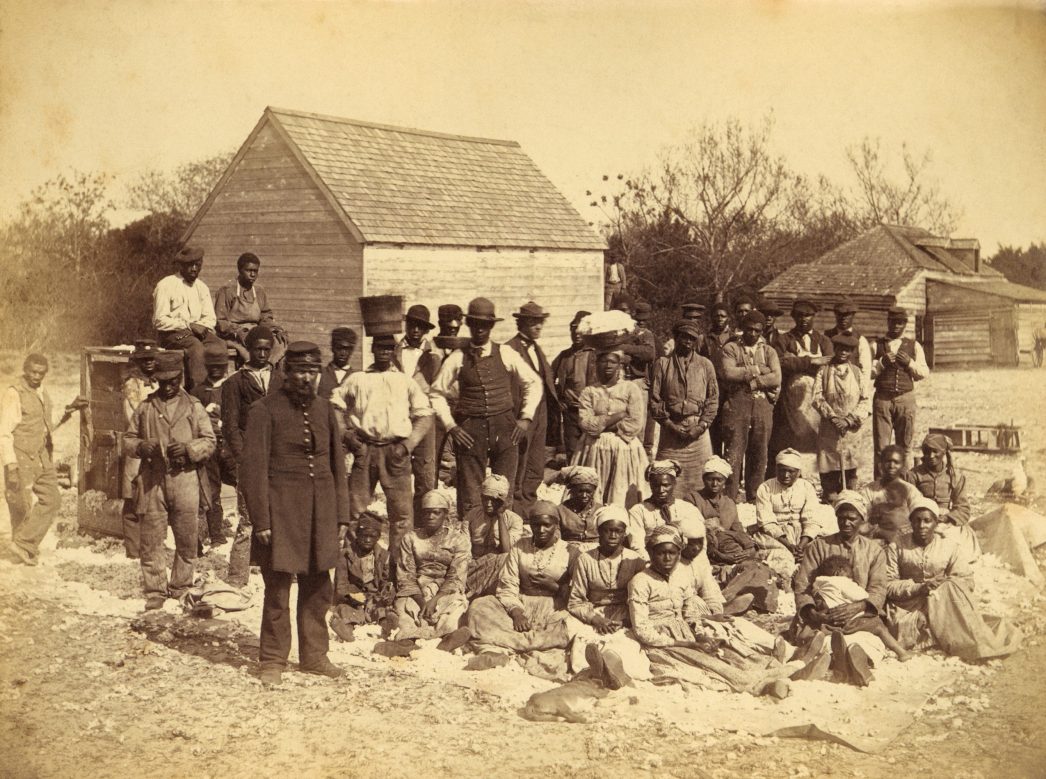“Every law that defined slaves as property, every racist treatise declaring blacks inferior, every southern white man’s dream of upward mobility, rested on the presence of large numbers of blacks, but not on an understanding or familiarity with them.”
– Oakes, James. The Ruling Race
Initially Nat Turner had chosen July 4 to begin his rebellion.
This was no coincidence.
One thing slave owners never understood was how July 4, the day Americans celebrate their independence from England could be one of the most difficult days of the year for enslaved Africans.
On July 4, every year, enslaved Africans had to sit and watch their masters celebrate their own independence from colonial rule and speak with so much reverence for his own freedom while they had none.
Let’s just be clear. What was his master celebrating exactly?
Oh, that’s right, tax relief.
He didn’t like the tax bracket he was in. He thought he was paying too much for among other things, his tea.
Freedom meant something else entirely to the enslaved African, which is why many thousands of enslaved Africans, as well as free blacks, fought on the side of the British during the American Revolutionary War.
Freedom to the enslaved African first and foremost meant being able to keep their families. Nearly every slave knew how it felt to have a loved one, a husband or wife, a son or daughter, a parent, sold away and never to seen or heard from again.
The very nature of slavery made the family, arguably the most basic and fundamental unit to human beings, the most unstable institution imaginable.
The British were the first to promise enslaved Africans their freedom had they been victorious. In fact, so many enslaved Africans began running away from their masters to join the British that eventually George Washington had to offer enslaved Africans the same deal just to stop the flood of defectors.
The founding fathers called King George III’s rule “tyrannical” yet I have yet to come across a single incident of King George forcibly deporting a colonist separating them from loved ones or making colonists work for free, or while they were sick or gravely ill, or face a flogging. Yet when British Parliament enacted a series of measures to increase tax revenue from the colonies, the founding fathers had the nerve to call what they did “Intolerable Acts”.
All enslaved Africans ever wanted was the same freedom that they saw their masters celebrating every July 4.
This is only human.
But therein lies the central problem to all of this.
Slave owners went to extraordinary lengths to make sure that their slaves had little to no contact with free blacks and that abolitionist propaganda was never discussed within earshot of them.
One Minister of a slave congregation was removed from his post and almost lynched for simply telling his congregation that they had souls and that “their souls were more valuable to them than they were to their masters.”
Slave owners drove people who held antislavery views out of pulpits, schools, editorial offices and entire communities. They even barred antislavery speeches and petitions on the floor of the House of Representatives. They wanted to reduce the chances of enslaved Africans being exposed to people talking about freedom to as close to zero as possible.
But slaves didn’t need to overhear the arguments of abolitionists or hang out with free blacks or be told that they had souls to make them want their freedom.
They knew what freedom was.
They had to look no further than at their own master to know what freedom was.
He provided a living, walking, breathing shining example.
Not a day went by that they didn’t see the wet, drafty, poorly constructed shack that they lived in and compare that to the spacious mansion that master lived in.
There wasn’t a mother on a plantation that didn’t know the feeling of having a child sold away never to be seen again.
You couldn’t pull that “pull yourself up from your bootstraps, no one ever GAVE me anything, I had to WORK for everything I have” bull@hit on enslaved Africans.
They knew master didn’t WORK for his wealth. They knew better than anyone who did ALL of the work on the plantation. And most importantly, they knew it was through their work that he was so wealthy.
They knew his children were also wealthy because they inherited HIS wealth.
They saw the food that they served him and they saw food that they were given to eat.
They saw the types of clothes that his children wore and the types of clothing their children wore (if any).
They saw the personal tutors that came in and instructed his children and they heard the stories that his kids told when they returned from their vacations in Europe after they graduated from school.
No, make no mistake about it, they knew very well what freedom was.
While Nat Turner’s decision to kill 60 people while they slept in their beds was as extreme as extreme can get, enslaved Africans had always found ways to express their discontent for not only mistreatment but also for their condition.
For example, it was not unheard of for a slave that was pushed too far to assault whites in self-defense. There were even cases when they took a beating and then “accidentally” burned their master’s houses down.
Grease fires, you know? You should be careful with those.
This is why if you ever visit a plantation, the cook house is going to be a brick building far enough away from the main house that if the slaves have a “grease fire” it won’t burn down the master’s house.
Other popular ways of showing discontent were refusing to learn trades, killing livestock and also burning plantation buildings down like barns and storage buildings. Hell, even murder suicides were not entirely unheard of. When a slave was most likely to finally say “@#$@ this @#$%” and decide he was going to run for freedom it was after a particularly painful flogging or unusually severe workload.
The profile of a runaway slave was generally 18-24 years old, male, and like I said, the recent recipient of a particularly brutal flogging. But running meant initially outrunning an overseer chasing him at full speed with a rifle, then dodging the slave patrols who were on horseback.
Their only job was to spot terrified looking Negros running at full speed in the opposite direction of the plantation.
Easy work if you could get it.
When and if the slave made it to the woods, swamp, or what have you, he could expect to soon hear the soothing sound of hounds who had no doubt picked up his scent from whatever clothing or items he had left back at the plantation. Chances are he didn’t bring much food (if any) and now he had to deal with hunger pangs on top of avoiding any wild animals, like wild cats and dogs and, oh yeah, let’s not forget the poor white men who were out hunting in those same woods looking for food for their families who would hope that bringing you back to the plantation would mean a handsome reward from whoever owned you.
Once returned to the plantation a slave could EXPECT, at the minimum, to have his pass to travel from plantation to plantation revoked which meant if he had a wife and children at another plantation that he wouldn’t be able see them again (rarely did people marry from the same plantation if they could help it). He could also expect to be chained somehow to something heavy at night, at least for the foreseeable future, and even chained to another slave during the day. Sometimes he would even be fitted with a cowbell around his neck or some sort of device that would sound off while he moved to ensure he didn’t try to escape again. And of course all of this comes after a GP flogging (GP stands for general principle) that made the flogging that initially made him decide to run away seem like a hot oil massage by comparison.
Sometimes a slave would stay away until his anger or his master’s anger had subsided, then return under his own free will, take his flogging and just go back to work. Often if a slave returned under his own free will that flogging wasn’t as bad as the one he would’ve gotten had he been captured and returned against his will. Often runaway slaves were caught trying to find food to eat either from sympathetic slaves or from their own families.
But as we all know, although the odds of successfully escaping were horribly stacked against you, some actually did make it. Sometimes slaves were able to avoid their pursuers for weeks, month and even years before being caught. One account I found told about how a slave lived for seven months in the woods while his mother carried him food.
Ah, the love of a mother for her son.
The most amazing story I found was that of a slave woman who was separated from her husband because her master sold her away. She escaped her new master, managed to make it back to her husband and then hid in the woods for years undetected; she even bore three children by him while she was hiding in the woods.
But the hardest obstacle a slave had to face when he decided to run for his freedom was bar none, the decision to leave his family.
Henry Bibb, a former slave turned abolitionist who authored “Narrative of the Life and Adventures of Henry Bibb, an American Slave”, summed it up beautifully when he wrote, “one of the most self-denying acts of my whole life, to take leave of an affectionate wife, who stood before me on my departure, with dear little Frances in her arms, and with tears of sorrow in her eyes as she bid me a long farewell. It required all the mortal courage that I was master of to suppress my feelings while taking leave of my little family.” Growing up Henry Bibb saw all six of his younger siblings (all boys) sold away never to be seen again. Henry famously wrote in his autobiography “If ever there was any one act of my life while a slave, that I have to lament over it is that of being a father and a husband of slaves.”

